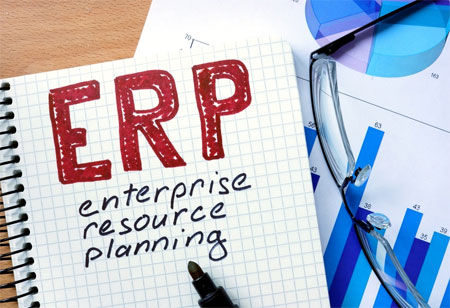THANK YOU FOR SUBSCRIBING
ERP Managing Company Resources Like A Boss in 6 Ways
As the company expands, huge amounts of data is generated from all the departments. It is necessary for the organizations to sort and manage the resources collected efficiently, to ensure sustainable growth rate.

By
Apac CIOOutlook | Thursday, November 21, 2019
Stay ahead of the industry with exclusive feature stories on the top companies, expert insights and the latest news delivered straight to your inbox. Subscribe today.
As the company expands, huge amounts of data is generated from all the departments. It is necessary for the organizations to sort and manage the resources collected efficiently, to ensure sustainable growth rate.
Fremont, CA: A vital asset for the organizations to perform more efficiently is an Enterprise Resource Planning (ERP). The automation of processes by the integration of data from various sources in the most secure and user-friendly way is carried out by ERP. It is a plethora of tools that help manage business' performance by developing agility and ergonomic behavior in day to day operations. In the case of strategic planning and implementation, ERP has a key role to play. Enlisted below are a few among those.
• Streamlined IT Costs:
Without a doubt, ERPs are a significant upfront investment; the right ERP will consolidate the IT costs and improve the overall efficiency. As a single system, ERP alone will reduce end-user training requirements by employing the same user interface for all job roles across the organizational workflow, ultimately streamlining IT costs.
• Visibility and Agility:
Many functional areas are transformed by ERP, some of which include CRM, accounting and payroll, Human resources, and supply chain management. An ERP, when aptly installed, unites various databases, extracting data from disparate systems. It supports quick, confident decision-making based on real-time data for the business leaders.
• Better Reporting:
A single ERP system in all departments means an integrated reporting system for all enterprise operations. It facilitates an enhanced analysis of business performance depicted in a simplified workflow. The ERP offers business intelligence services that identify operational pros and cons that need improvement for quality corporate planning.
• Data Quality for Data Security:
One of the core values of ERP is to create efficient data control and sharing. A single input for data collection via ERP results in a high level of data security for both on-premise and cloud environments. A centralized data hub makes sure that the enterprise data is accurate, consistent, and secure, guaranteeing a single source of truth to draw insights from.
• Meet Regulatory Compliance:
Compliance is a must for all organizations; with disparate systems, the maintenance, control, and accuracy of the financial records are challenging. Having an ERP for the organization will assist in better regulatory compliance via secure, validated data supported by built-in reports. Adherence to Generally Accepted Accounting Principles (GAAP) can also be availed with an ERP. This enhances the consistency of the company's financial status along with the easy preparation of reports for governmental and regulatory agencies.
• Improved Supply Chain Management:
Supply chain management can save a considerable amount of expenses and also improve its efficiency in terms of lead times, making the deliveries more punctual along with several other benefits. With a suitable ERP platform, the supply chain for the organization can be enhanced in all sections, whether it is demand, forecasting, production, inventory, distribution, procurement, or to increase the overall profitability by reducing overages in inventory and manufacturing.
Check out: Top ERP Solution Companies





